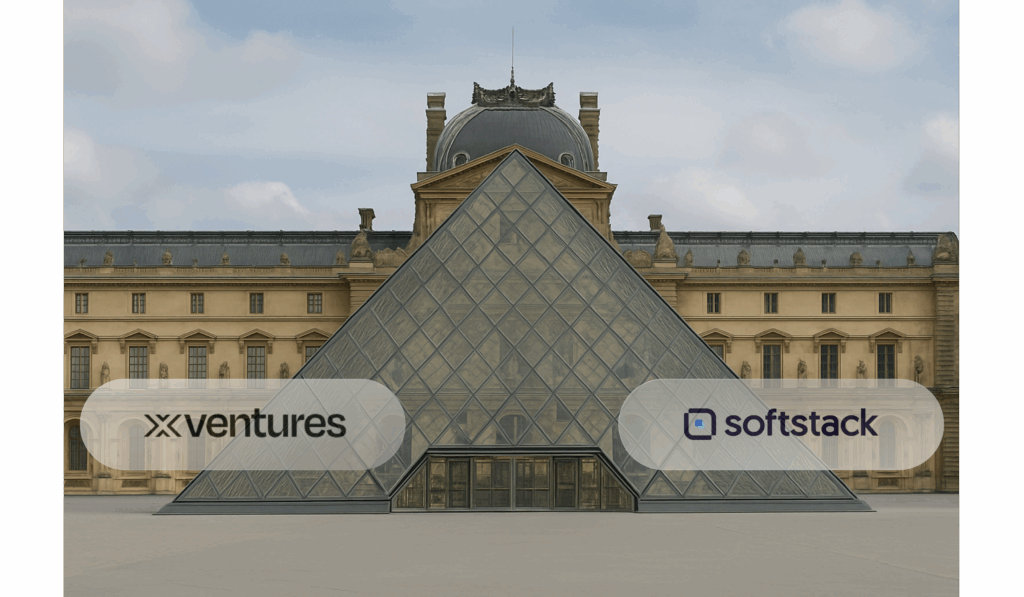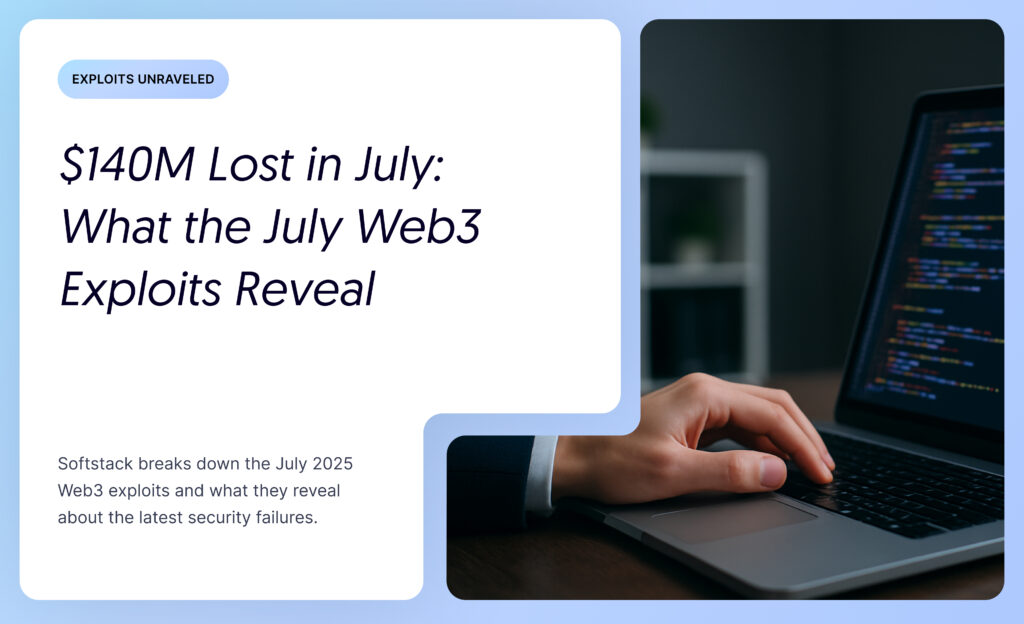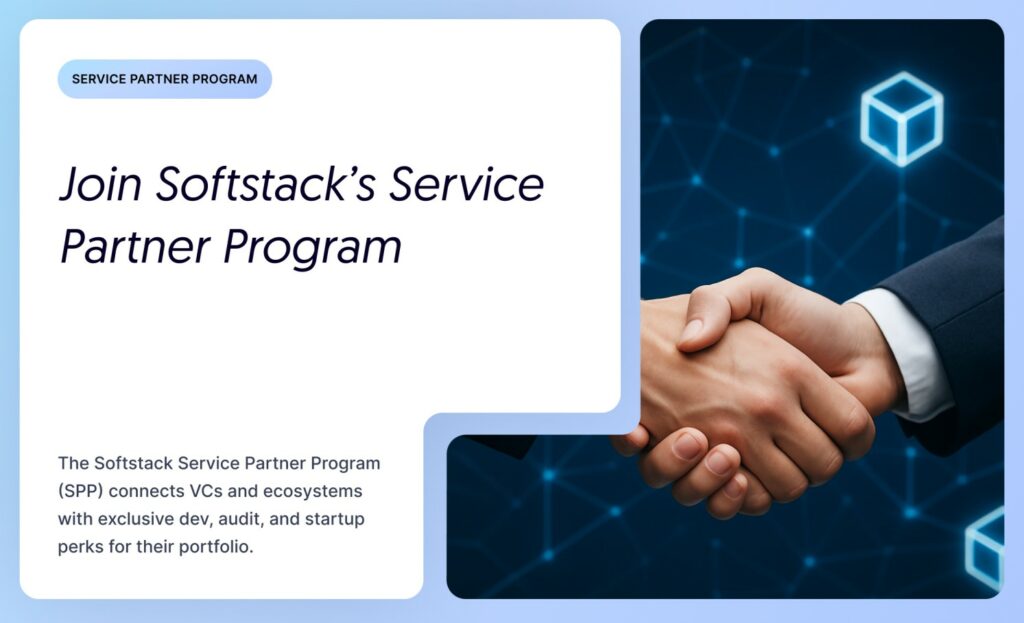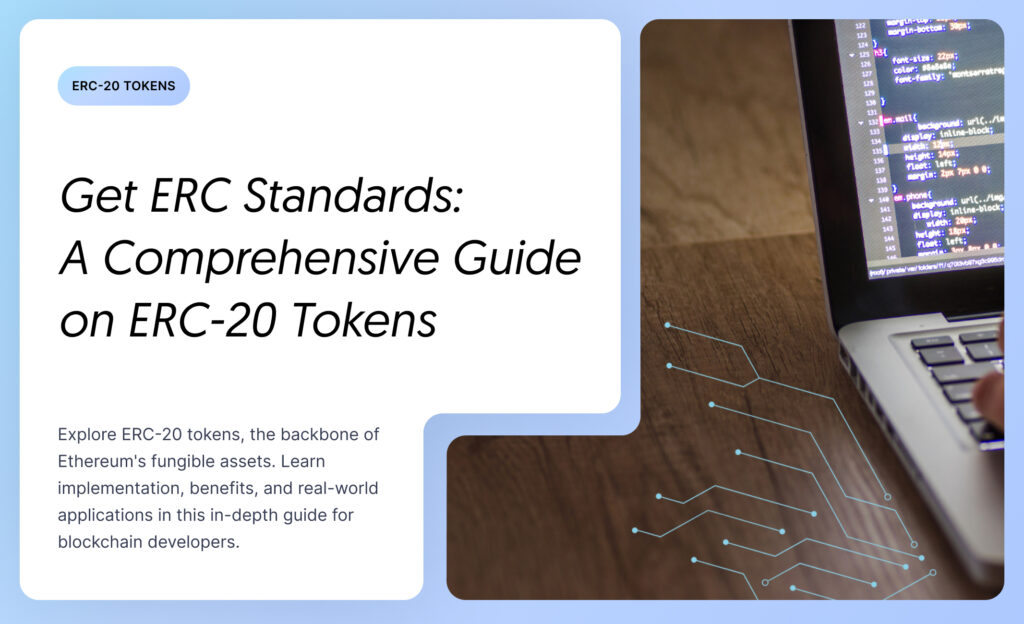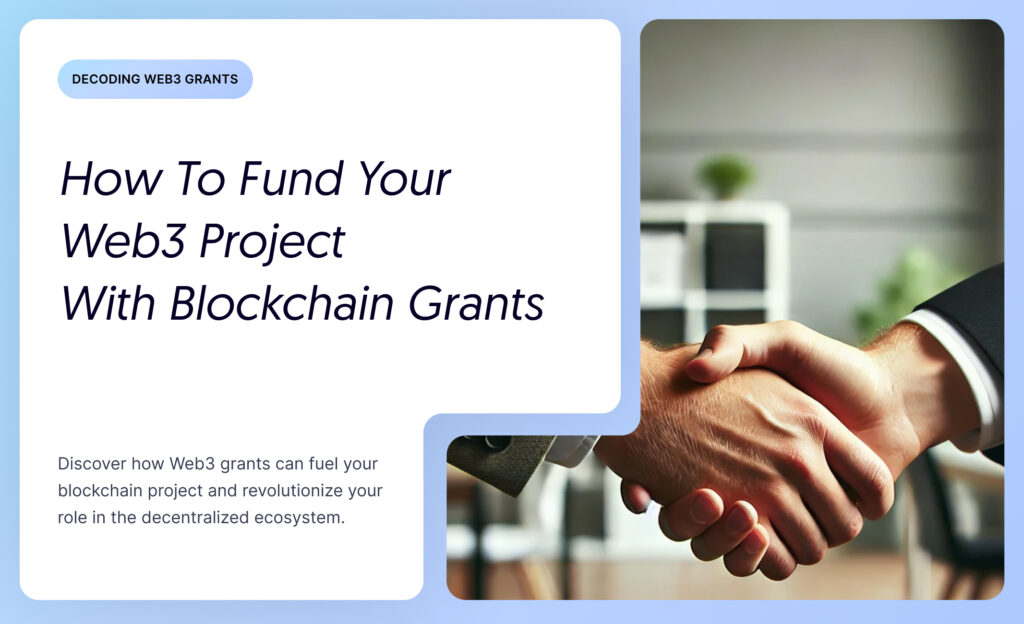As the internet evolves towards decentralization, Web3 technology plays a pivotal role in shaping a user-centric digital landscape. At the forefront of this transformation are Web3 grants—a vital funding mechanism that fosters innovation in the blockchain ecosystem. In this blog, we’ll explore what Web3 grants are, their significance, and how you can leverage this exciting opportunity to fuel your projects.
What Are Web3 Grants?
Web3 grants are financial awards given to individuals, teams, or organizations that are contributing to the development of the decentralized web or blockchain ecosystems. Unlike traditional venture capital, these grants usually don’t require equity or repayment, allowing recipients to focus purely on building and innovating. The funding is provided by various sources, including blockchain protocols, Web3 foundations, decentralized autonomous organizations (DAOs), corporate entities, and even individual investors.
Why Are Web3 Grants Important?
The Importance of Web3 Grants
- Fostering Innovation: Grants allow developers and teams to concentrate on groundbreaking ideas without the stress of immediate financial returns, supporting the open-source nature of Web3.
- Lowering Barriers to Entry: Not every developer has access to the resources needed to launch a project. Web3 grants democratize involvement in the ecosystem, ensuring viable ideas can thrive.
- Attracting Talent: Financial support entices skilled developers and creative thinkers, enriching the talent pool and advancing the field.
- Supporting Ecosystem Growth: By funding diverse projects—ranging from infrastructure to niche applications—Web3 grants help to build a more robust and diverse ecosystem, reducing dependence on a few central players.
- Encouraging Community-driven Projects: Many Web3 grants are provided by DAOs, thus allowing the community to have a say in which projects should receive funding. This decentralizes decision-making and will enable communities to support initiatives that align with their collective goals.
Types Of Web3 Grants
The landscape of Web3 grants is diverse, catering to different types of projects and stages of development. Generally, these grants fall into the following categories:
- Protocol Improvement Grants: Focus on enhancing blockchain protocols, improving security, and developing interoperability solutions. They are primarily aimed at teams or individuals working on the foundational infrastructure of blockchain networks.
- Infrastructure Grants: Designed to support projects that build essential Web3 infrastructure, such as oracles or layer-2 solutions, these grants help create the technological backbone necessary for a thriving decentralized ecosystem.
- Cross-Chain/Blockchain Agnostic Grants: These grants support projects that enhance interoperability between blockchains or operate independently of any single network. They focus on developing solutions that enable seamless interaction and data transfer across diverse blockchain platforms, fostering a more integrated and versatile ecosystem.
- Community and Ecosystem Grants: These grants are dedicated to expanding blockchain ecosystems. They support projects that develop decentralized applications (dApps), create educational content, and engage in outreach efforts to grow the community.
- Research Grants: Aimed at funding cutting-edge research, these grants support academic and applied studies in areas like cryptography, consensus mechanisms, scalability solutions, and other advanced aspects of blockchain technology.
- Public Goods Grants: Benefiting the broader community by supporting open-source software, blockchain explorer tools, and public documentation. They ensure that valuable resources remain accessible and beneficial to everyone.
- Marketing and Awareness Grants: Focused on increasing awareness and adoption, these grants fund marketing campaigns, educational initiatives, and developer outreach programs to promote a particular blockchain ecosystem.
Challenges and Considerations
Navigating Challenges in the Web3 Grant Landscape
- High Competition: High-quality grants attract numerous applicants, making a strong proposal essential.
- Technical Rigor: Many grants require advanced technical knowledge. Collaboration with experienced developers may improve success rates.
- Transparency and Accountability: Recipients must maintain transparency about fund usage, often requiring regular reporting to comply with grant expectations. Failing to meet stipulated milestones can result in funding termination.
- Project Sustainability: Investigate how projects can sustain operations post-grant, ensuring long-term viability.
- Rapidly Evolving Landscape: As the Web3 sector is changing rapidly, it’s crucial to stay updated on the latest developments and align your project accordingly.
Benefits of Web3 Grants
The Advantages of Tapping into Web3 Grants
- Boosting Innovation: Web3 grants enable creative solutions that might not receive venture capital attention.
- Promoting Decentralization: Funding drives the development of diverse projects, supporting the decentralized ethos of Web3.
- Encouraging Community Engagement: Community-influenced funding keeps projects aligned with users’ needs and values.
- Facilitating Collaboration: Grants foster partnerships between developers and organizations, enhancing the ecosystem.
How to Apply for Web3 Grants
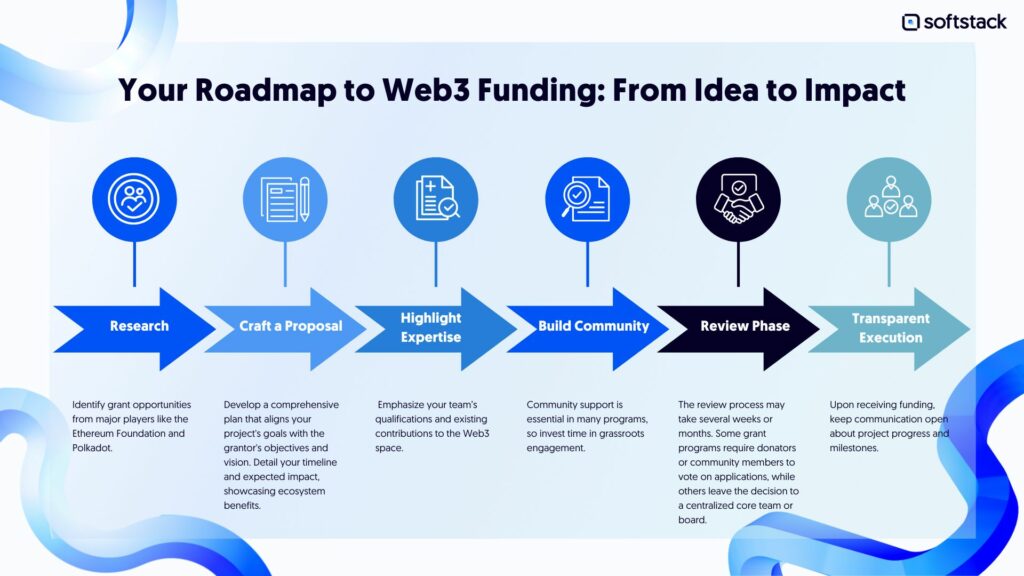
Steps to Secure Grant Funding
- Research Grant Programs: Identify grant opportunities from major players like the Ethereum Foundation and Polkadot.
- Align with Program Goals: Ensure your project aligns closely with the grantor’s objectives and vision for the ecosystem.
- Craft a Solid Proposal: Develop a comprehensive proposal outlining your project’s goals, timeline, and expected impact.
- Highlight Expertise: Emphasize your team’s qualifications and existing contributions to the Web3 space.
- Engage with the Community: Community support is essential in many programs, so invest time in grassroots engagement.
- Await Review and Decision: The review process may take several weeks or months. Some grant programs require donators or community members to vote on applications, while others leave the decision to a centralized core team or board.
- Maintain Transparency Post-Award: Upon receiving funding, keep communication open about project progress and milestones.
Top Web3 Grants Program You Should Know About
Well-known Web3 grants programs
Soneium Spark Incubation Program:
Sony’s Soneium blockchain offers tailored support through the Soneium Spark program. With up to $100,000 in funding, this initiative is perfect for developers looking to innovate in areas like DeFi, NFTs, gaming, and social applications. Beyond financial backing, Sonium Spark provides mentorship and strategic partnerships, creating a supportive environment to bring your Web3 ideas to life. (Link)
Gitcoin Grants:
Gitcoin has become one of the most popular platforms for decentralized grant funding. The platform uses quadratic funding to distribute donations to projects based on community preferences. (Link)
Ethereum Foundation Grants: The Ethereum Foundation has been a significant player in funding projects that advance the Ethereum ecosystem. Developer-focused grants for improving the Ethereum 2.0 protocol are particularly notable. (Link)
Polygon Ecosystem Fund: Polygon regularly provides grants to projects that want to build on or improve its Layer 2 scaling solution. (Link)
Solana Grants Program: Solana is known for its high-performance blockchain, and their grant program focuses on attracting developers to build scalable dApps on its platform. (Link)
Filecoin Foundation Grants: Filecoin is a decentralized storage network and its grants program funds projects that contribute to the Filecoin ecosystem, especially in the areas of decentralized storage and retrieval. (Link)
Chainlink Community Grants: Chainlink’s grant program focuses on projects that enhance the Chainlink ecosystem, ranging from developer tools, DeFi, and smart contracts to educational content. (Link)
Real-World Success Stories
Case Studies of Web3 Grant Projects
Acala Network: Acala Network, a leading DeFi platform on Polkadot, received vital support through Web3 grants. These funds were instrumental in developing its multi-collateralized stablecoin, aUSD, and its decentralized financial ecosystem. The grant helped Acala focus on building a robust DeFi infrastructure that integrates seamlessly with the Polkadot network, offering users innovative financial services and interoperability across various blockchains. This foundational support has been crucial in establishing Acala as a key player in the DeFi space on Polkadot. (Link)
ENS (Ethereum Name Service): Received essential funding from the Ethereum Foundation to create human-readable blockchain addresses. This grant was vital for ENS’s development, but its continued success has been supported by its governance token and ecosystem partnerships. (Link)
1inch: 1inch, a leading decentralized exchange (DEX) aggregator, has received vital support through Web3 grants to accelerate its development. The grant funding was instrumental in enhancing 1inch’s ability to aggregate liquidity across multiple DEXes, providing users with the best possible trading rates and optimizing their transactions. This support allowed 1inch to focus on innovation and refine its technology, which has since become a key player in the DeFi space, offering seamless and efficient trading experiences across various decentralized platforms. (Link)
Quantstamp: Quantstamp, a leading provider of blockchain security solutions, received essential support through Web3 grants to advance its smart contract auditing services. This funding was critical in developing Quantstamp’s technology for identifying vulnerabilities and ensuring the security of smart contracts across various blockchain platforms. With the grant’s support, Quantstamp has been able to enhance its auditing tools and contribute significantly to improving the overall security and reliability of blockchain projects. As a result, Quantstamp has become a trusted name in the blockchain security space. (Link)
Uniswap: A leader in decentralized finance (DeFi), initially benefited from a grant from the Ethereum Foundation. This early support allowed Uniswap to focus on developing its automated token exchange protocol without immediate profit pressures. Although the grant was crucial, Uniswap’s growth was also fueled by its ICO and ecosystem support, establishing it as a major decentralized exchange. (Link)
Conclusion
Navigating the world of Web3 grants can be a game-changer for your project, offering essential support and opportunities for growth. Whether you’re looking to enhance blockchain infrastructure, expand your ecosystem, or drive research and innovation, there are numerous grants available to help you succeed.
Ready to explore these opportunities? We can provide expert advice and guidance, drawing from our successful experience with grant programs. If you’re interested in starting a grant application or need help identifying the right funding options, reach out to us today. Alternatively, dive in yourself and discover the potential grants that could propel your project forward. Contribute to the Web3 ecosystem and make your mark on the future of decentralized technology!


